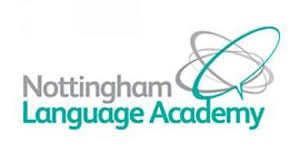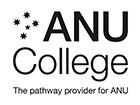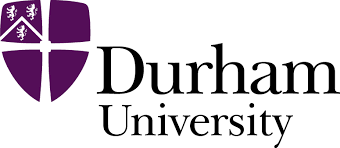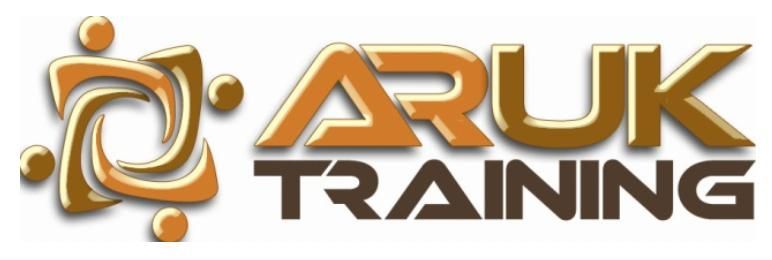
Project Cost, Quality and Project Resources Management (PMK Workshop 2) - Certified Program
Course ID: 2508187101210EGI
Course Dates : 18/08/25 Course Duration : 5 Studying Day/s Course Location: Dubai, UAE
Language: Bilingual
Course Category: Professional and CPD Training Programs
Course Subcategories: Leadership and Management Excellence
Course Certified By: * Projacs Academy
* Professional Training and CPD Programs
Certification Will Be Issued From :
KSA
Course Fees: £2,940.22
Vat Not Included in the price. VAT may vary depending on the country where the course or workshop is held.
Click to Pay
Date has passed please contact us Sales@e-s-hub.com
Course Information
Introduction
The ability to manage project costs, quality, and resources effectively is a cornerstone of successful project delivery in any industry. Projects, whether large-scale infrastructure developments or small organizational initiatives, demand meticulous planning and execution to ensure alignment with budgetary constraints, quality standards, and resource availability. In an era where organizations are increasingly focused on optimizing performance while minimizing waste, mastering these three pillars of project management becomes indispensable. This course addresses the intricate balance required to achieve project objectives without compromising on cost-efficiency, quality assurance, or resource allocation.
One of the primary challenges faced by project managers is the misalignment between cost estimates and actual expenditures. For instance, the Sydney Opera House, originally estimated at $7 million, eventually cost over $100 million due to poor cost management practices. Such examples underscore the importance of robust cost management frameworks like Earned Value Management (EVM) and Activity-Based Costing (ABC). By integrating these methodologies into project workflows, organizations can mitigate financial risks and enhance transparency. Similarly, quality management frameworks such as Total Quality Management (TQM) and Six Sigma provide structured approaches to ensuring deliverables meet or exceed stakeholder expectations.
Resource management, often overlooked, is equally critical. Poor resource allocation can lead to inefficiencies, delays, and employee burnout. Consider the case of a global IT firm that failed to allocate sufficient human resources for a software development project, resulting in missed deadlines and client dissatisfaction. Effective resource management involves not only scheduling but also understanding team dynamics, skill sets, and capacity planning. This course delves into advanced techniques such as Resource Leveling and Critical Chain Project Management (CCPM), equipping participants with tools to optimize resource utilization.
The integration of cost, quality, and resource management is not merely theoretical; it has practical implications across industries. In construction, for example, adhering to quality standards while managing costs ensures compliance with safety regulations and avoids costly rework. In healthcare, efficient resource allocation ensures timely patient care without overburdening staff. By addressing these interconnected aspects, this course bridges gaps in knowledge and practice that often hinder project success. Participants will gain insights into industry trends such as Agile methodologies, sustainability in project management, and digital transformation tools like AI-driven resource optimization platforms.
For individuals, mastering these competencies enhances career prospects and leadership capabilities. Organizations, on the other hand, benefit from improved project outcomes, reduced risks, and enhanced competitiveness. A study by the Project Management Institute (PMI) revealed that organizations with mature project management practices waste 28 times less money than their counterparts. This statistic highlights the tangible impact of investing in professional development programs like this one. By fostering a culture of continuous learning, companies can empower their workforce to tackle complex challenges with confidence.
This course draws upon established theories such as Maslow’s Hierarchy of Needs (applied to resource prioritization), Deming’s PDCA Cycle (for quality improvement), and Pareto Analysis (for cost optimization). Through real-world case studies, interactive workshops, and hands-on exercises, participants will develop a holistic understanding of how to integrate these concepts into their daily operations. Whether you’re overseeing a multinational project or leading a small team, this program will equip you with the skills to drive success in an increasingly competitive landscape.
Objectives
By attending this course, participants will be able to:
Analyze project cost structures using Earned Value Management (EVM) to identify variances and recommend corrective actions.
Evaluate quality assurance processes and implement Total Quality Management (TQM) principles to enhance project deliverables.
Design resource allocation plans using Resource Leveling and Critical Chain Project Management (CCPM) techniques to optimize efficiency.
Apply Agile methodologies to adaptively manage project resources and timelines in dynamic environments.
Implement risk mitigation strategies to address potential cost overruns and resource shortages proactively.
Synthesize data from cost, quality, and resource metrics to create comprehensive project performance reports.
Develop a sustainability-focused project plan that aligns with organizational goals and regulatory requirements
Who Should Attend?
This course is ideal for:
Project managers, team leaders, and consultants seeking to enhance their technical expertise in cost, quality, and resource management.
Professionals in construction, IT, healthcare, and manufacturing industries who are responsible for delivering projects within budget and on schedule.
Individuals preparing for certifications such as PMP® or PRINCE2®, as this course provides foundational and advanced knowledge aligned with global standards.
Training Method
• Pre-assessment
• Live group instruction
• Use of real-world examples, case studies and exercises
• Interactive participation and discussion
• Power point presentation, LCD and flip chart
• Group activities and tests
• Each participant receives a 7” Tablet containing a copy of the presentation, slides and handouts
• Post-assessment
Program Support
This program is supported by:
* Interactive discussions
* Role-play
* Case studies and highlight the techniques available to the participants.
Daily Agenda
The course agenda will be as follows:
• Technical Session 08.30-10.00 am
• Coffee Break 10.00-10.15 am
• Technical Session 10.15-12.15 noon
• Coffee Break 12.15-12.45 pm
• Technical Session 12.45-02.30 pm
• Course Ends 02.30 pm
Course Outlines
Foundations of Project Cost Management
Overview of project cost management principles and frameworks.
Introduction to Earned Value Management (EVM) and its applications.
Techniques for accurate cost estimation and budgeting.
Case study: Lessons learned from high-profile cost overruns.
Day 2:
Quality Management in Projects
Understanding quality standards and compliance requirements.
Implementation of Total Quality Management (TQM) and Six Sigma.
Tools for quality control and assurance.
Group exercise: Developing a quality management plan.
Day 3:
Resource Allocation and Optimization
Fundamentals of resource management and capacity planning.
Resource Leveling and Critical Chain Project Management (CCPM).
Managing human resources: Team dynamics and skill assessment.
Interactive workshop: Creating a resource allocation matrix.
Day 4:
Integrating Cost, Quality, and Resources
Balancing competing priorities in project management.
Risk management strategies for cost and resource challenges.
Agile methodologies for adaptive project management.
Real-world application: Simulating a multi-faceted project scenario.
Day 5:
Sustainability and Future Trends
Incorporating sustainability into project planning.
Emerging technologies: AI, IoT, and their impact on project management.
Preparing for certification exams (PMP®, PRINCE2®).
Final assessment and feedback session.



















































